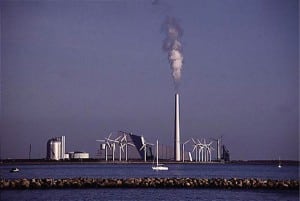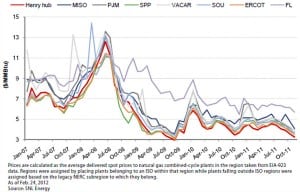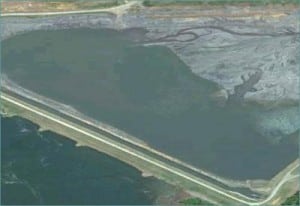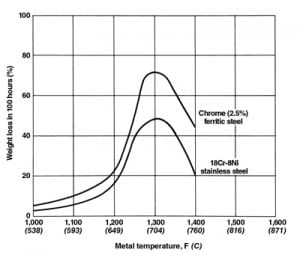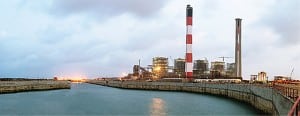Coal
-
Coal
Denmark Extends Renewables Standard to 100% by 2050
Denmark’s parliament in late March agreed to a new energy strategy seeking to wean the country off oil and gas. It could result in the Nordic country cutting its greenhouse gas emissions 34% by 2020, compared to 1990 levels, and decreasing energy consumption by more than 12%, compared to 2006.
-
Coal
Coal-to-Gas Switching: It’s All in the Price
Trying to assess the potential for coal-to-gas switching in today’s environment is something of an art form. Suppose for a moment that one were able to devise an economic model that truly replicates real-world generation dispatch for plant operators. A model is only as good as the inputs that go into it, and, let’s face it, future natural gas prices are a critical component.
-
Coal
EPA Sets Carbon Standards for New Coal Units, Compliance Options Limited
In late March, the Environmental Protection Agency (EPA) proposed its first-ever carbon pollution standard for new power plants, limiting carbon dioxide emissions from new fossil fuel–fired power plants. However, the technology options for complying wiith the proposed rule remain few and expensive, as recent developments demonstrate.
-
Coal
FERC: Coal Generation Losing Out to Natural Gas
Coal generation, as a percentage of total power output in the U.S., declined steadily to 39% at the end of 2011 from about 51% in 2002, while generation from natural gas–fired combined cycle plants grew to more than 20% from 10% over the same period, the Federal Energy Regulatory Commission (FERC) said in late April, as it released its annual assessment for U.S. energy markets.
-
Coal
Mercury and Air Toxics Standard, CSAPR Legal Pushback Mounts
Two Environmental Protection Agency rules are facing legal challenges. The Mercury and Air Toxics Standards is being challenged by half the U.S. states, while a decision in a case concerning the Cross-State Air Pollution Rule could be reached as soon as this summer.
-
O&M
Optimizing Your Coal Ash Recovery Operation
Coal combustion products often can be recycled into a variety of construction and building materials. However, first you must be able to retrieve the wet ash from a holding pond before the ash can be dried and sold.
-
Coal
Design Features of Advanced Ultrasupercritical Plants, Part II
Advanced ultrasupercritical (A-USC) is a term used to designate a coal-fired power plant design with the inlet steam temperature to the turbine at 700C to 760C. In Part I of this three-part report, we introduced the A-USC boiler. In this segment, we look at the metallurgical advancements required for the A-USC boiler to operate at such high temperatures. The final report will explore the A-USC boiler’s unique design challenges.
-
Coal
Wisconsin Public Service Proposes Installation of New Multi-Pollutant Control Technology
Integrys Energy Group subsidiary Wisconsin Public Service Corporation (WPS) on Monday filed for a Certificate of Authority (CA) from the Public Service Commission of Wisconsin (PSCW) to install Regenerative Activated Coke Technology (ReACT) at its 321-MW Weston 3 plant.
-
Coal
India Revs Up Capacity with Massive Coal Plants
India, a country that plans to fuel its current level of gross domestic product growth of between 8% and 9% with massive, mostly coal-fired power capacity additions over the next decade, in March commissioned an 800-MW supercritical unit at the first of India’s government-envisioned ultra-mega power plants (UMPP).
-
Coal
THE BIG PICTURE: Coal Demand Surges
Patterns of coal trade have been shifting in recent years as demand surges in Asian countries. Whereas Japan and the European Union (EU) have long been the world’s largest hard coal importers, China and India are now emerging as top importers. This surge has shifted the center of gravity in international coal trade to the […]

